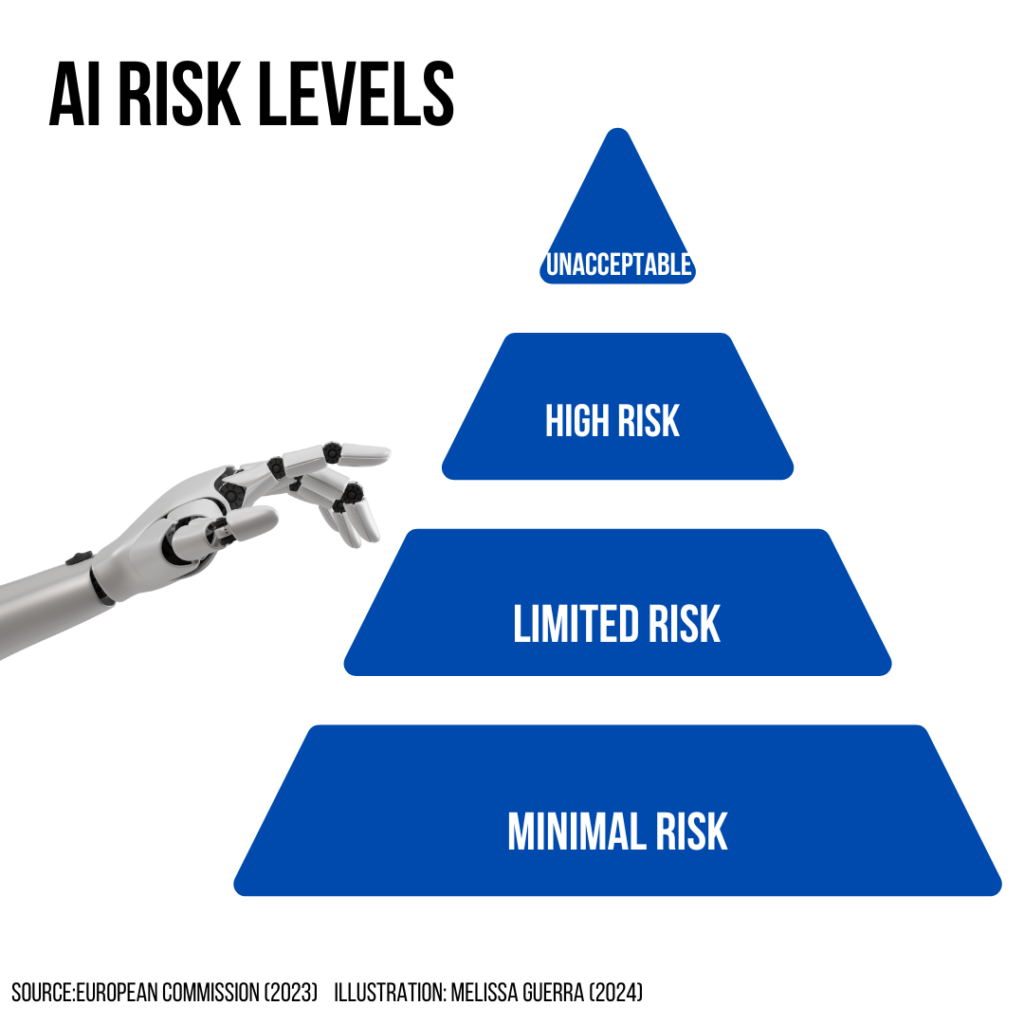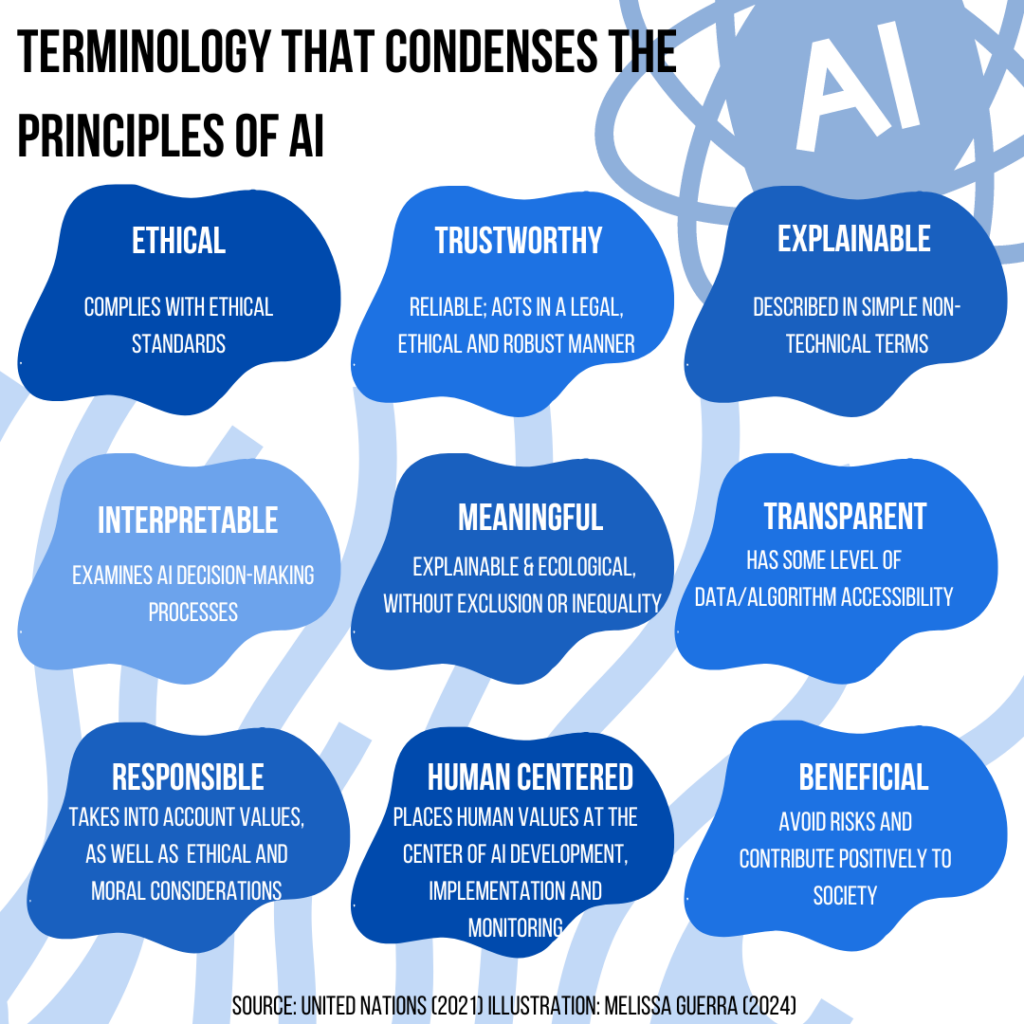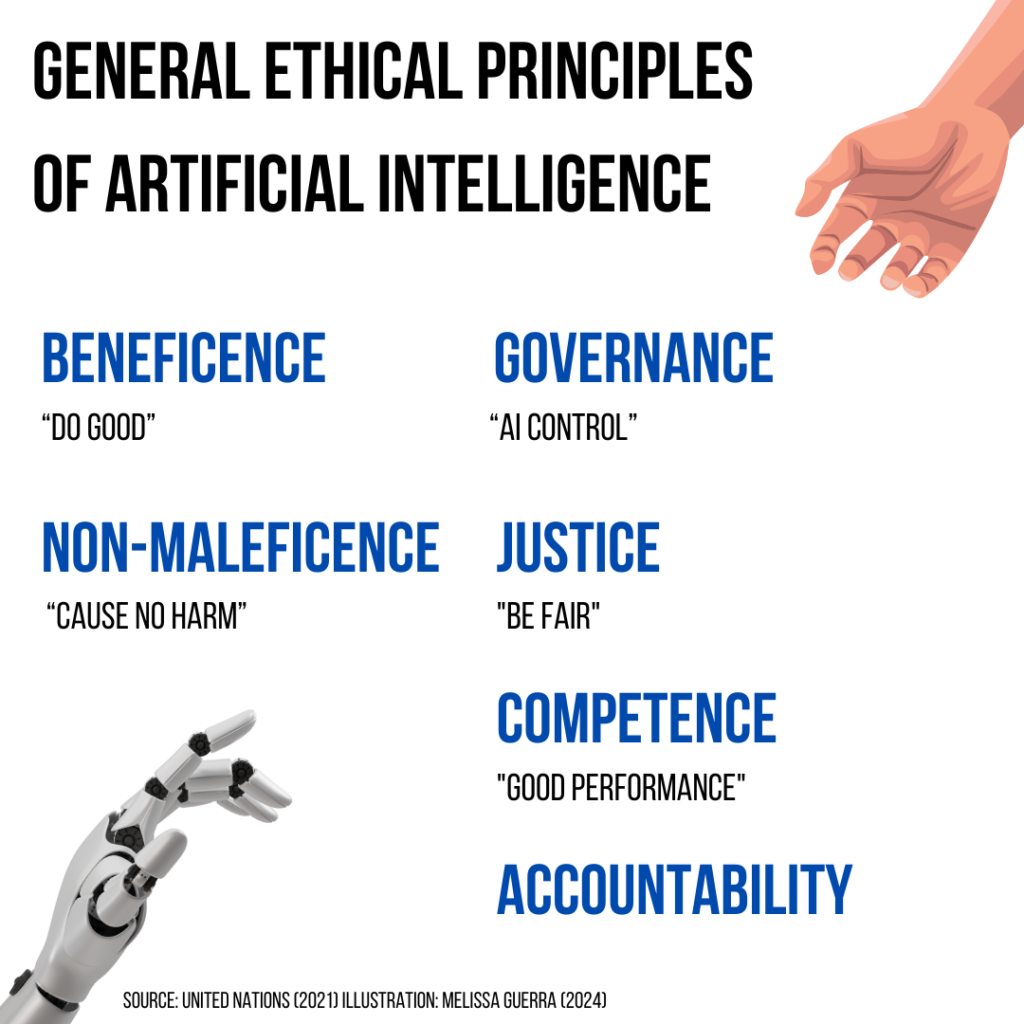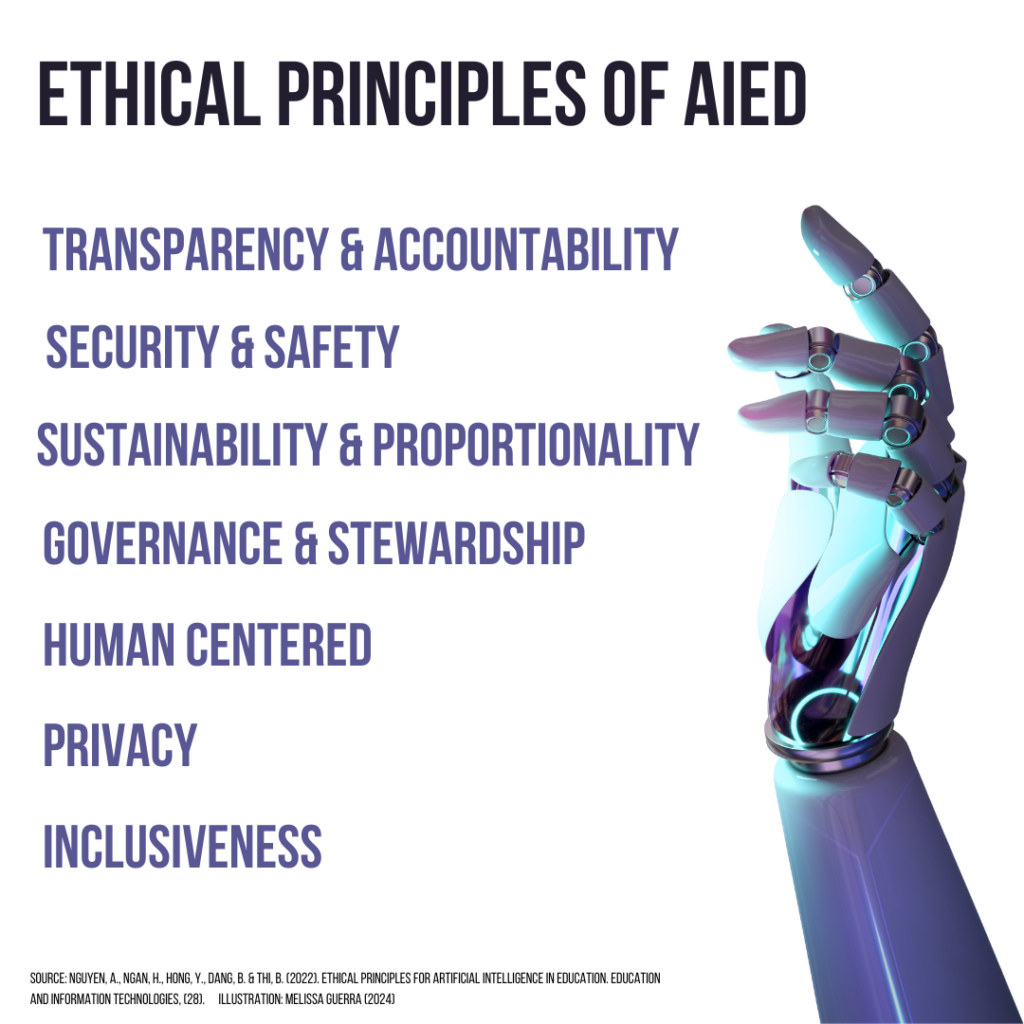When thinking about artificial intelligence, it is customary to imagine the future of self-driving cars, virtual reality headsets, or advances in medicine, but have you ever thought about the social and ethical impact of AI?
Although it may seem that ethics and AI are two distant terms, ethics is essential for the proper development and implementation of AI for the common good; the ethical implications primarily with data (its use, consent, privacy, biases, and transparency) and other aspects discussed later have been the subject of debate among many international bodies.
Overview of ethics in AI
Although the artificial intelligence era is ubiquitous, it must be developed responsibly and transparently. Therefore, it is a priority to consider not only the technical aspects of AI but also the ethical implications of its use. In addition, governments must create policies and guidelines to ensure responsible AI practices, facilitating innovation and progress.
In its report, A Framework for Ethical AI at the United Nations, the United Nations mentions that governments, organizations, and businesses have begun considering how AI is used. Some have issued policies or principles; the European Commission is one of the most involved actors in political responsibility regarding AI.
For its part, the European Commission promulgated the AI Act, a proposed regulation allowing developers, deployers, and users to have precise requirements and obligations regarding the specific uses of AI. The act seeks to reduce the administrative and financial burdens of small and medium-sized enterprises (SMEs).
This proposal uses a risk-based approach consisting of four levels of risk, classifying education at the high-risk level.

Principle Frameworks of AI Ethics
Many international organizations have coined various terms to describe their ethical frameworks for AI. Although some of these are confusing, more important are the principles inherent in them.
Each organization defines its brand name per the focus of its ethical framework, so these can vary: Ethical AI, Trustworthy AI, Explainable AI, Interpretable AI, Meaningful AI, Transparent AI, Responsible AI, Human-centered AI, and Beneficial AI.

For example, the European Commission, in its AI division called the High-Level Expert Group on Artificial Intelligence (AI HLEG), uses the term Trustworthy AI in its report Guidelines for Trustworthy AI, which conveys a sense of trust from human beings to AI because it has the qualities of being legal, ethical, and robust.
General Principles of AI
Some organizations that have been working on AI ethics initiatives include AI Ethics Initiative, AI Now Institute, Deep Mind Ethics and Society, Future of Life Institute, and The Institute for Ethical & AI Machine Learning, to name a few.
Although their focus has been primarily on data and its analysis, organizations like The Montreal Declaration for Responsible Development of Artificial Intelligence have developed a series of humanistic principles that promise to improve AI development, use, and implementation.
Here are some of the flagship, general ethical principles of artificial intelligence:

Ethics and Artificial Intelligence in Education (AIED)
The use of artificial intelligence in education (AIED) has revolutionized not only the teaching-learning processes but also the learning experience in general. It has been identified that the use of AI tools in education has, for the most part, involved four principal roles: smart tutor, mentor, learning/peer accompanier, and policy advisor.
However, some ethical dilemmas about AI exist in education. UNESCO points out six challenges to achieving the sustainable development of AIED.
- Establish inclusive and equitable comprehensive public policies.
- Prepare teachers for AI education.
- Empower AI in education.
- Develop quality, inclusive data systems.
- Ensure that research at AIDE is meaningful.
- Ensure ethics and transparency in data collection, use, and dissemination.
Other risks (legal, ethical, security issues, etc.) include the following: systematic bias, discrimination, inequality, xenophobia (at the individual level), inequality gaps among students, privacy risks associated with data accountability (informed consent, privacy violation, fairness, statistical apophenia), surveillance and consent, identity configuration, user confidentiality, integrity and inclusivity, data collection, restricted data availability, bias and representation, ownership, control, and autonomy of data.
Although the ethical risks involved in using and implementing AI in education are varied, and many are barely being considered, reports and policies have been created to ensure the proper use of AI in education.
Ethical principles in AIED
Some organizations have been concerned with issuing guidelines on ethics and AI in education, including the following: UNESCO Ethics AI (2020), UNESCO Education & AI (2021), Beijing Consensus, OECD (2021), European Commission (2019), European Parliament Report AI Education (2021), UNICEF (2021) and World Economic Forum (2019).
It should be noted that reports on AI ethics cover principles, within which there are more specific codes for these fundamentals, so they become very extensive.
Listed below are the seven fundamental ethical principles of Artificial Intelligence for education:

- Transparency and accountability: The processes for collecting, analyzing, and reporting data and the processes corresponding to the establishment, monitoring, and control of AIDE standards must be transparent, accessible, and explainable. They should also consider informed consent, data ownership and purposes, and the terms of AI use.
- Security and safety: AI’s design, development, and implementation must be robust enough to protect and safeguard data to ensure privacy and security.
- Sustainability and proportionality: The processes must consider aspects of design, development, and use to minimize the ecological footprint and avoid disruption of the global economy, the labor market, and social dimensions, such as culture and politics.
- Governance and stewardship: refers to establishing and implementing public policies to regulate AI development, use, and management, considering ethics.
- Human-centered: This must complement human cognitive, social, and cultural capabilities, ensuring human control over AI work processes.
- Privacy: The implementation of the user’s informed consent must be guaranteed, maintaining the privacy and confidentiality of the information, both when they provide it or when the system collects data about it.
- Inclusiveness (accessibility): The design, development, and deployment of SDAs must consider infrastructure, skills, social acceptance, and adaptability to varied users to enable equitable access and use of AI. This same principle should apply to data and algorithms, as these should be non-discriminatory and impartial, ensuring fairness and equality among different groups of users.
It is important to note that many reports do not focus on children’s privacy. However, organizations such as UNICEF, the World Economic Forum, UNESCO Education and AI, the European Parliament Report: AI Education, and the Institute for EthicalAI in Education (IEAIE) have come out to defend the inclusion of children’s rights in ethical AI policies.
These aim to reduce children’s risk of exposure to AI, not only to protect their data and privacy but also to expose issues related to children’s malleability regarding values, ideas, attitudes, and what is appropriate for their age.
Now that you know a little more about the ethics of AI in education, have you heard of the ethical principles of AI in education? How important is ethics in the responsible development of AI? Which principle do you think has more areas of opportunity? Do you think children’s right to privacy is respected in educational environments?
Translation by Daniel Wetta
This article from Observatory of the Institute for the Future of Education may be shared under the terms of the license CC BY-NC-SA 4.0 
)
)


)